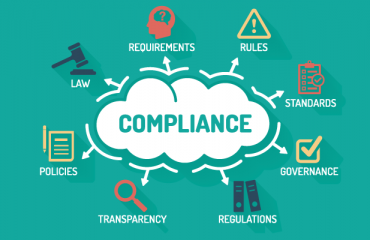Preserving HR compliance – Coping up with Dynamic Employment Laws The Basics

Compliance and HR go along for organizational improvements and to be legally submissive. A lot of companies have now realized that when HR & Compliance are brought into one line, they yield much greater benefits and improve organizational functions. In today’s modern environment, technology advancements have taken businesses to new heights. Similarly, HR compliance has evolved by the time and popped new demands from business owners. Hence, in order to survive businesses have to be adaptable to dynamic HR compliance laws. A study reveals that the employment laws have changed about 400% in last 20 years.
Business owners have to wear many hats simultaneously to perform duties properly; these include a hat of a compliance officer as well. The reason is very obvious, business demands arise from every direction and owners need to cope up with them for success. But regrettably, often businessmen aren’t really aware of the crucial need to comply with human resource related laws and regulations until an enforcement agency knock at their door. Disappointingly, till that time it’s very late and a government agency auditor doesn’t really like to give casual reminder. Therefore, preventive measures are necessary. Following are some crucial compliance problems with which every business owner should be accustomed:
Some Common HR Compliance Challenges:
Form I-9 is one significant paper which authenticates the identity as well as the work authorization of the new employees in USA. This legal requirement emerged in late 80’s and placed an obligation on employers to ensure that forms I-9 are finalized in a timely fashion and be 100% compliant with the ICE (Immigration and Customs Enforcement) which are the audit standards. These records are important to retain in a proper manner using files and folders which can be easily accessible when required.
“Offer Equal Employment Opportunities” – Non-Discriminatory Hiring:
There are legal obligations for equal employment policies. Federal anti-discrimination regulations are imposed by Equal Employment Opportunity Commission (EEOC) which states that there must be non-discriminatory hiring policies in organizations. Everybody should be treated equally when applied to a position in an organization. Employers must be aware of the following:
- Federal, state and local employment laws which prohibits discrimination in hiring and apply on that particular type of business.
- Does the executives and top managers are properly trained on this subject matter?
- Are the policies in place to be communicated with the efforts to oblige by these regulations?
- Are the company practices properly analyzed? Including employment decisions like hiring, access to training and promotion.
Business owners must take a closer look to their hiring policies to ensure that the workplace is free of any discrimination and must comply with federal, state and local laws.
How to Ensure Compliance in HR?
Being HR compliant is an immense prerequisite and ensuring that the organization is shadowing HR compliance can be a heavy duty task; still, following are main three pointers to get started with:
- First of all, an internal audit for HR compliance strengths and weaknesses must be conducted. If you are unsure of from where you should begin, then you can always seek an expert’s advice for it. Plus, you can also read and research for the requirements on administering government agency’s HR compliance webpage.
- Secondly, certify the person who is answerable for HR compliance matter is a well-trained one. Don’t forget, that the managers and supervisors who deal in day-to-day employment decisions of the business are the ones who represent compliance.
- Lastly, incorporate a system that monitors internal processes to ensure compliance and provide up to date information on it. Plus, this system will also safeguard the consistency in compliance.
Apt and Pre-emptive compliance with federal, state and local employment laws is mandatory irrespective of the business’s size or scale. As the frequency and scope of compliance audits are increased by the government agencies, organizations must be able to oblige by them and take necessary steps to cope up with the dynamic compliance rules and regulations. Otherwise, adverse outcomes may result due to negligence or non-compliance.
What are the Main HR Compliance Concerns and Accompanying Consequences?
A survey elaborated that there are six categories of HR compliance: Payroll, risk and safety, benefits, hiring, termination and employee relations. HR managers are assertive when it comes to oblige with payroll and benefits regulations but they seemed less confident when compliance in regard with hiring, risk and safety and employee relation was questioned. However, these aspects are also noteworthy to be properly compliant with the laws; else this can put the employer in trouble of OSHA and FLSA violations plus employee grievances.
Managing the HR Compliance Burden:
It’s imperative for business owners to take necessary steps to address HR compliance challenges. Many valid concerns were given about the financial outcomes of non-compliance which make employers think aggressively about the HR compliance challenges. As the regulations on employment and compensatory awards are rising, organizations are facing greater challenges to comply with HR and employment laws. If they will fail to comply, they will be questionable for potential legal liabilities.
In today’s time when employers are a lot conscious for their budgets, they must not take any risk in indulging in potential legal liabilities and must ensure and address HR compliance as per federal, state and local laws. Even, if they have to seek third-party guidance on this subject matter or hiring professional to outsource the complete HR functions.
In a Nutshell: Be HR Compliant and Stay Competitive
Both small and medium sized organizations have recognized the significance of HR compliance and the mounting challenge of obliging with these sophisticated, complex and dynamic HR and employment laws. Organizations have recognized the potential financial and legal outcomes of non-compliance; hence they are putting more efforts to be legally compliant in HR and employment laws. Using shortcuts in compliance will put organizations in jeopardy and cause significant competitive disadvantage. Thus, being HR compliant will make the organizations staying competitive.





 We will not leak your personal information
We will not leak your personal information